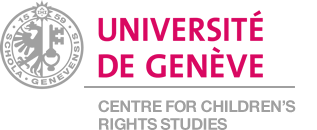Children's Social Movements - Liebel, Manfred
In: Montgomery, Heather (Ed.): Oxford Bibliographies Online: Childhood Studies
Introduction. Social movements can be understood as more or less organized associations of persons who consider themselves connected by common interests and who want to achieve social change by means of protest. They agree on common objectives and try to exert influence on other individuals, social groups, and politics at large. Up until the beginning of the 21st century, socioscientific research has rarely focused on questions of whether children - understood in the sense of the UN Convention on the Rights of the Child as persons not yet eighteen years old - can be agents of social movements and questions concerning how they act and how they are to be perceived. Childhood studies gradually open their perspective to children as (potential) stakeholders of social movements by applying approaches that perceive children as co-constructors of social reality. The treatment of children as subjects in their own right has also fostered approaches. Due to the scant attention paid to children as stakeholders of social movements, there are only few literature sources relating to such movements. The following overview therefore takes a widened understanding of social movements as a basis ranging from supra-regionally and even internationally organized movements to informal and locally restricted initiatives. Moreover, it includes publications studying temporarily limited interventions of children in politics and human rights - for example, as participants in conferences on children’s rights or as researchers or authors of statements on their own behalf. When children’s movements are contemplated in literature, an articulate distinction is not always made between movements that act in support of children and movements produced by children themselves. Regarding the first, literature on what is known as “children’s rights movements” is taken into account; concerning the second, literature on children’s participation in social movements that incorporate persons of all ages and also literature on movements resting in the hands of children are considered. Among the latter, a difference is often made between informal, rather spontaneous groupings and organized movements in which children are the determining stakeholders. Social movements of children are often outcomes of child rights-oriented pedagogical and social projects or retroact on these. Therefore, particular paragraphs deal with such project approaches and with the explicit promotion of children’s social movements by adults. To reach a better understanding of children’s social movements, potential referential theories and research approaches are presented.
